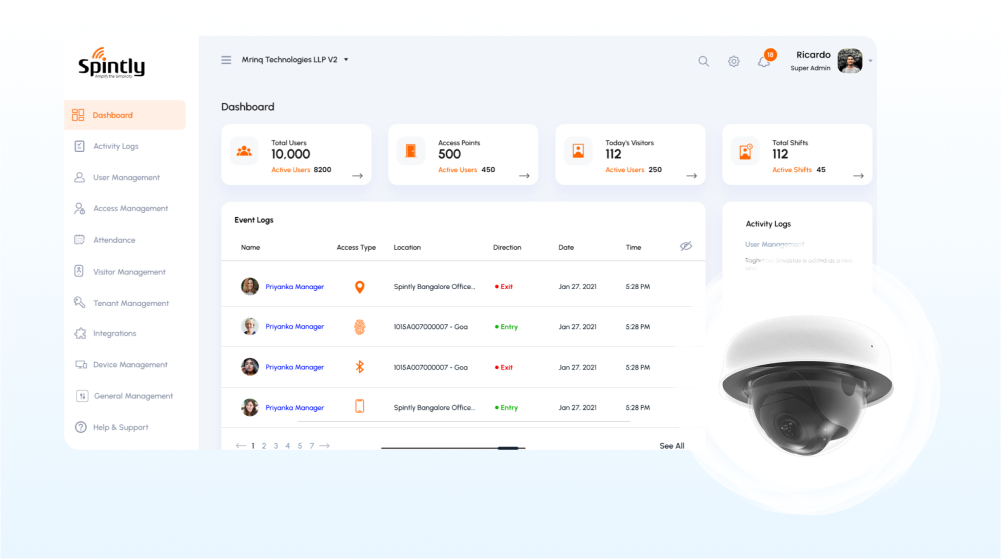The Importance of Tenant Management for
Access Control
Effective tenant management is crucial for ensuring proper access control, safeguarding property, and maintaining security. It plays a vital role in regulating permissions and monitoring tenant activities within the premises.
Introduction:
Effective access control is crucial for maintaining security and safety on any property. In the context of rental properties, tenant management plays a vital role in ensuring that access control measures are implemented and enforced efficiently. This blog explores the significance of tenant management in maintaining robust access control systems and protecting the interests of both landlords and tenants.
Enhanced Security and Safety:
Tenant management facilitates the implementation of access control measures that enhance security and safety within rental properties. By granting access only to authorized individuals, the risk of unauthorized entry and potential criminal activity is significantly reduced. Proper tenant screening during the onboarding process ensures that tenants are trustworthy and can be relied upon to follow access control protocols. Additionally, tenant management enables swift action in the event of a security breach, enabling landlords to respond promptly and mitigate risks to the property and its occupants.
Protection of Property and Assets:
Efficient tenant management helps safeguard the property and its assets. By effectively managing access control, landlords can limit access to specific areas or amenities, such as parking lots, gyms, or storage areas, ensuring that only authorized tenants or individuals have access. This reduces the likelihood of theft, vandalism, or misuse of facilities. Moreover, tenant management systems can track access logs and generate reports, enabling landlords to monitor and identify any suspicious activities, thereby protecting their property and assets.
Compliance with Regulations and Legal Obligations:
Tenant management plays a crucial role in ensuring compliance with regulations and legal obligations regarding access control. Landlords must adhere to laws and regulations governing privacy, data protection, and fair housing practices. By implementing effective tenant management practices, landlords can ensure that access control measures are in line with these requirements. This helps protect tenants’ privacy rights, prevents discrimination, and reduces the risk of legal disputes or penalties associated with inadequate access control.
Improved Tenant Satisfaction:
Efficient tenant management positively impacts tenant satisfaction. By implementing well-defined access control procedures and promptly addressing tenant requests, landlords can provide a secure and hassle-free living experience. For instance, granting tenants the ability to manage their access credentials, such as electronic key fobs or digital codes, offers convenience and flexibility. A well-managed access control system also instills confidence among tenants, demonstrating that their safety and security are a priority. Satisfied tenants are more likely to renew their leases, recommend the property to others, and contribute to a positive rental community.
Conclusion:
Tenant management is instrumental in establishing and maintaining effective access control systems. By prioritizing security, protecting property and assets, ensuring compliance, and enhancing tenant satisfaction, landlords can create a safe and desirable living environment. Implementing robust tenant management practices not only benefits property owners but also fosters trust, loyalty, and peace of mind among tenants.





